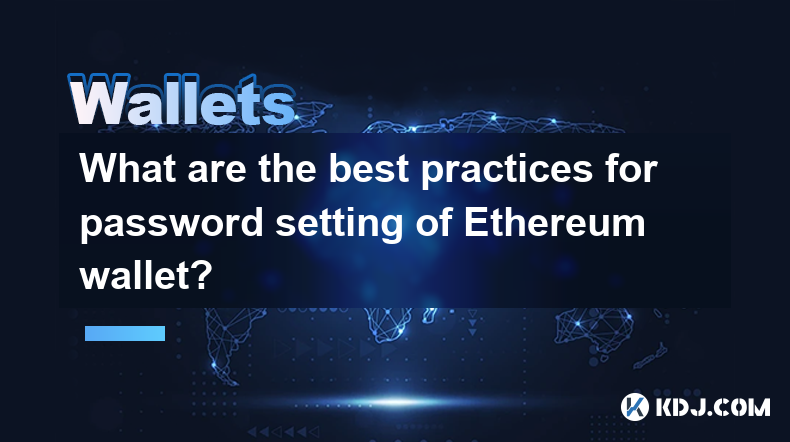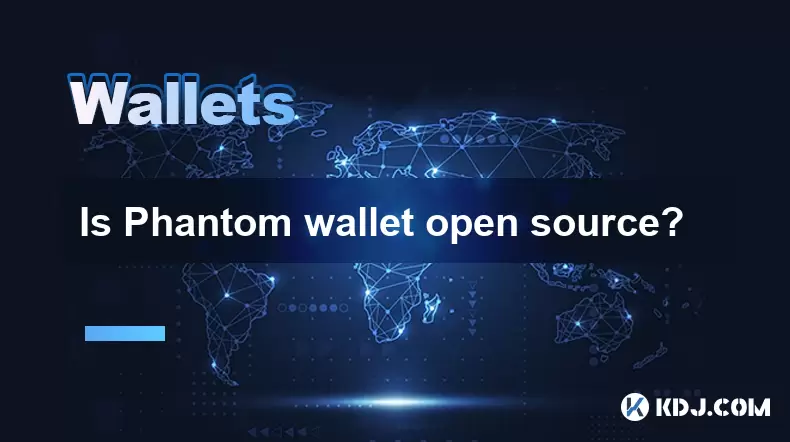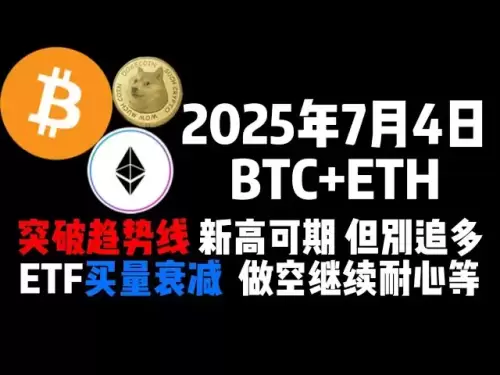-
 Bitcoin
Bitcoin $108,463.3266
-1.47% -
 Ethereum
Ethereum $2,535.8576
-3.62% -
 Tether USDt
Tether USDt $1.0006
0.02% -
 XRP
XRP $2.2352
-2.24% -
 BNB
BNB $658.1049
-0.63% -
 Solana
Solana $149.9207
-2.53% -
 USDC
USDC $0.9998
-0.07% -
 TRON
TRON $0.2857
0.45% -
 Dogecoin
Dogecoin $0.1659
-4.24% -
 Cardano
Cardano $0.5784
-3.85% -
 Hyperliquid
Hyperliquid $38.4944
-4.70% -
 Sui
Sui $2.9107
-4.19% -
 Bitcoin Cash
Bitcoin Cash $485.3637
-3.32% -
 Chainlink
Chainlink $13.3074
-4.18% -
 UNUS SED LEO
UNUS SED LEO $9.0499
0.41% -
 Avalanche
Avalanche $18.0347
-3.98% -
 Stellar
Stellar $0.2394
-2.23% -
 Toncoin
Toncoin $2.8110
-2.68% -
 Shiba Inu
Shiba Inu $0.0...01155
-3.23% -
 Litecoin
Litecoin $87.7967
-3.87% -
 Hedera
Hedera $0.1555
-2.87% -
 Monero
Monero $317.3839
-1.79% -
 Polkadot
Polkadot $3.4144
-4.90% -
 Dai
Dai $1.0000
-0.02% -
 Ethena USDe
Ethena USDe $1.0003
0.00% -
 Bitget Token
Bitget Token $4.4734
-2.29% -
 Uniswap
Uniswap $7.2556
-6.53% -
 Pepe
Pepe $0.0...09693
-7.27% -
 Aave
Aave $267.0924
-4.81% -
 Pi
Pi $0.4834
-3.31%
What are the best practices for password setting of Ethereum wallet?
Secure your Ethereum wallet with a long, complex, unique password; avoid personal info; use 2FA and a password manager; consider a hardware wallet; and change passwords regularly.
Mar 18, 2025 at 04:54 am

Key Points:
- Complexity is Key: Ethereum wallet passwords should be long, complex, and unpredictable, combining uppercase and lowercase letters, numbers, and symbols.
- Avoid Personal Information: Never use personal data like birthdays, names, or addresses in your password.
- Unique Passwords: Each wallet should have a unique, unrelated password. Never reuse passwords across different accounts.
- Secure Storage: Store your password securely, ideally using a password manager with strong encryption.
- Two-Factor Authentication (2FA): Enable 2FA whenever possible for an extra layer of security.
- Regular Password Changes: Periodically change your passwords to mitigate the risk of compromise.
- Hardware Wallets: Consider using a hardware wallet for enhanced security; these devices store your private keys offline.
What are the best practices for password setting of Ethereum wallet?
Securing your Ethereum wallet is paramount, as it holds the key to your cryptocurrency holdings. A weak password is an open invitation to hackers. Therefore, crafting a robust and secure password is crucial. Let's delve into the best practices.
First and foremost, your password must be exceptionally strong. Aim for a minimum length of 12 characters, ideally longer. Incorporate a mixture of uppercase and lowercase letters, numbers, and symbols. Avoid easily guessable sequences like "123456" or "password." The more random and unpredictable your password, the better.
Never, under any circumstances, use personal information in your password. This includes birthdays, anniversaries, names, addresses, or any other data easily accessible to others. Hackers often use readily available information to crack passwords.
Each Ethereum wallet should possess a unique password. Avoid the common mistake of reusing the same password across multiple accounts. If one account is compromised, the attacker gains access to all your other accounts if you use the same password.
Safeguarding your password is just as important as creating a strong one. Avoid writing it down on paper or storing it in an easily accessible digital location. A password manager is a recommended tool. These tools encrypt your passwords, making them virtually unreadable even if the manager itself is compromised.
Enabling Two-Factor Authentication (2FA) adds an extra layer of security to your Ethereum wallet. 2FA typically involves a secondary verification method, such as a code sent to your phone or email, in addition to your password. This makes it significantly harder for unauthorized access even if your password is compromised.
Regular password changes are a wise practice. While inconvenient, changing your password every few months or so helps mitigate the risk of a breach. This reduces the window of vulnerability should your password be discovered.
For the highest level of security, consider using a hardware wallet. These physical devices store your private keys offline, making them immune to most software-based attacks. Even if your computer is compromised, your cryptocurrency remains secure.
Remember, your Ethereum wallet password is the gatekeeper to your funds. Prioritize its security by following these best practices. A small amount of effort in password creation and management can save you significant financial and emotional distress in the long run.
Common Questions:
Q: Can I use a password generator?
A: Absolutely! Password generators are excellent tools for creating strong, random passwords. Many password managers include built-in generators. Ensure you choose a reputable generator.
Q: What if I forget my Ethereum wallet password?
A: Recovery options vary depending on the type of wallet. Some wallets allow password resets through email or recovery phrases. However, if you don't have access to these recovery methods, you may lose access to your funds permanently. This highlights the importance of securely storing your recovery information.
Q: Are all Ethereum wallets equally secure?
A: No. The security of an Ethereum wallet depends on several factors, including the software's quality, the user's security practices, and the type of wallet (software or hardware). Hardware wallets generally offer superior security compared to software wallets.
Q: How often should I change my Ethereum wallet password?
A: There's no single universally accepted frequency. However, changing your password every few months is a good general guideline. Consider changing it more frequently if you suspect a security breach or if you've used the password elsewhere that has been compromised.
Q: What is a recovery phrase and why is it important?
A: A recovery phrase (also known as a seed phrase) is a list of words that allows you to restore access to your wallet if you lose your password or your device is damaged. It's crucial to keep your recovery phrase safe and secure, preferably in a physical, offline location. Never share it with anyone.
Q: What are the risks of using a weak password?
A: Using a weak password significantly increases the risk of your Ethereum wallet being compromised. Hackers can use brute-force attacks or easily guess weak passwords, gaining access to your funds and potentially causing significant financial losses.
Q: Can I use the same password for multiple cryptocurrency wallets?
A: No, absolutely not. Using the same password across multiple wallets is extremely risky. If one wallet is compromised, all others using the same password are also at risk. Always use unique, strong passwords for each wallet.
Disclaimer:info@kdj.com
The information provided is not trading advice. kdj.com does not assume any responsibility for any investments made based on the information provided in this article. Cryptocurrencies are highly volatile and it is highly recommended that you invest with caution after thorough research!
If you believe that the content used on this website infringes your copyright, please contact us immediately (info@kdj.com) and we will delete it promptly.
- Bitcoin's Pattern Break: Are HODLers the Key to the Next Surge?
- 2025-07-04 18:50:12
- Bitcoin Price, Trump's Bill, and the $150K Dream: A NYC Take
- 2025-07-04 19:50:12
- Ethereum, LILPEPE, and the July Bounce: Will Pepe Steal ETH's Thunder?
- 2025-07-04 19:10:12
- Binance Institutional Loans: Unlocking 4x Leverage and Zero Interest for Whales
- 2025-07-04 19:15:12
- Bitcoin Bull Run: Analysts Eye Peak in Late 2025?
- 2025-07-04 19:20:13
- Pepe Indicators, Bullish Forecast: Can the Meme Coin Rally?
- 2025-07-04 19:25:12
Related knowledge

How to cancel a pending transaction in Phantom wallet?
Jul 03,2025 at 07:21pm
Understanding Pending Transactions in Phantom WalletA pending transaction in the Phantom wallet occurs when a user initiates a transfer or interaction with the Solana blockchain, but it hasn't yet been confirmed by the network. This can happen due to various reasons such as low transaction fees, network congestion, or incorrect gas settings. It's import...

How to see the estimated value of my tokens in Phantom wallet?
Jul 04,2025 at 12:21am
What is Phantom Wallet?Phantom wallet is one of the most popular cryptocurrency wallets designed for the Solana blockchain. It allows users to store, send, receive, and manage various tokens built on Solana, including SPL tokens and NFTs. The wallet offers a user-friendly interface, making it accessible for both beginners and advanced users in the crypt...

How to lock my Phantom wallet extension?
Jul 03,2025 at 11:14am
What Is the Phantom Wallet and Why Lock It?The Phantom wallet is a popular non-custodial cryptocurrency wallet designed for interacting with the Solana blockchain. Supporting both browser extensions and mobile apps, Phantom allows users to store, send, receive, and stake SOL tokens, as well as interact with decentralized applications (dApps). Securing y...

Does Phantom wallet offer two-factor authentication (2FA)?
Jul 03,2025 at 09:00am
Understanding Phantom Wallet and Its Security FeaturesPhantom wallet is a widely used non-custodial cryptocurrency wallet that supports the Solana blockchain. It allows users to store, send, receive, and interact with decentralized applications (dApps) seamlessly. As security is a top priority for any crypto wallet user, security features like two-facto...

What is "rent" on Solana and how does it affect my Phantom wallet?
Jul 02,2025 at 08:35pm
Understanding 'Rent' on SolanaIn the context of Solana, the term 'rent' refers to a storage fee that users pay for maintaining data on the blockchain. Unlike Ethereum, where storage costs are paid once via gas fees during contract deployment, Solana implements a recurring cost model to ensure efficient usage of network resources. This means that any acc...

Is Phantom wallet open source?
Jul 03,2025 at 12:29am
What is Phantom Wallet?Phantom wallet is a non-custodial cryptocurrency wallet primarily designed for the Solana blockchain. It allows users to store, send, receive, and interact with decentralized applications (dApps) on the Solana network. The wallet is available as a browser extension and mobile application, offering a seamless experience for both be...

How to cancel a pending transaction in Phantom wallet?
Jul 03,2025 at 07:21pm
Understanding Pending Transactions in Phantom WalletA pending transaction in the Phantom wallet occurs when a user initiates a transfer or interaction with the Solana blockchain, but it hasn't yet been confirmed by the network. This can happen due to various reasons such as low transaction fees, network congestion, or incorrect gas settings. It's import...

How to see the estimated value of my tokens in Phantom wallet?
Jul 04,2025 at 12:21am
What is Phantom Wallet?Phantom wallet is one of the most popular cryptocurrency wallets designed for the Solana blockchain. It allows users to store, send, receive, and manage various tokens built on Solana, including SPL tokens and NFTs. The wallet offers a user-friendly interface, making it accessible for both beginners and advanced users in the crypt...

How to lock my Phantom wallet extension?
Jul 03,2025 at 11:14am
What Is the Phantom Wallet and Why Lock It?The Phantom wallet is a popular non-custodial cryptocurrency wallet designed for interacting with the Solana blockchain. Supporting both browser extensions and mobile apps, Phantom allows users to store, send, receive, and stake SOL tokens, as well as interact with decentralized applications (dApps). Securing y...

Does Phantom wallet offer two-factor authentication (2FA)?
Jul 03,2025 at 09:00am
Understanding Phantom Wallet and Its Security FeaturesPhantom wallet is a widely used non-custodial cryptocurrency wallet that supports the Solana blockchain. It allows users to store, send, receive, and interact with decentralized applications (dApps) seamlessly. As security is a top priority for any crypto wallet user, security features like two-facto...

What is "rent" on Solana and how does it affect my Phantom wallet?
Jul 02,2025 at 08:35pm
Understanding 'Rent' on SolanaIn the context of Solana, the term 'rent' refers to a storage fee that users pay for maintaining data on the blockchain. Unlike Ethereum, where storage costs are paid once via gas fees during contract deployment, Solana implements a recurring cost model to ensure efficient usage of network resources. This means that any acc...

Is Phantom wallet open source?
Jul 03,2025 at 12:29am
What is Phantom Wallet?Phantom wallet is a non-custodial cryptocurrency wallet primarily designed for the Solana blockchain. It allows users to store, send, receive, and interact with decentralized applications (dApps) on the Solana network. The wallet is available as a browser extension and mobile application, offering a seamless experience for both be...
See all articles

























































































